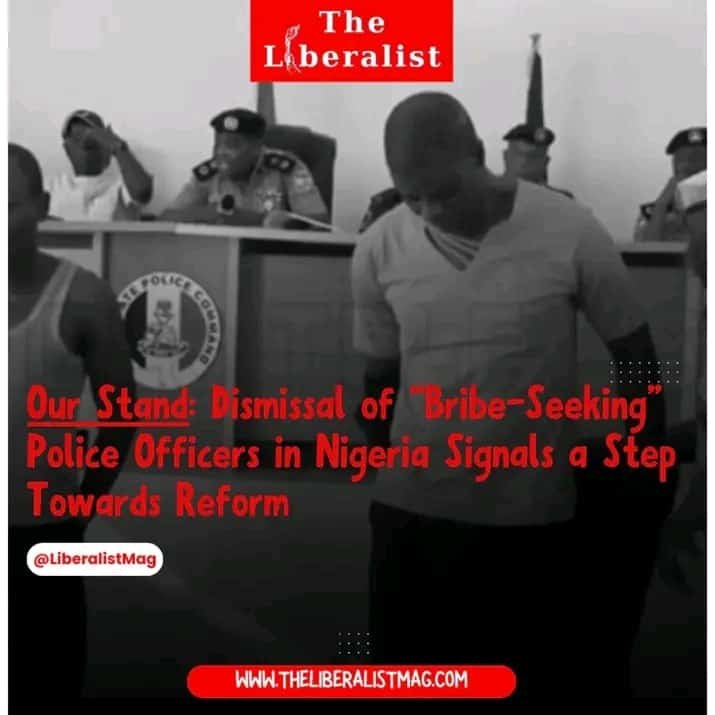Dear Advocate of Reasoning,
Welcome to another edition of our week’s newsletter. Let’s delve together into how the Nigerian security force is taking practical steps towards changing the public’s narrative of its institution.
The problem associated with this institution has been one that throws consistent attacks at liberty and the nation’s core. It not only affects the national image of the country, but it has also been a threat to citizens’ rights to freedom of expression and movement. One of our editors, Hammed J. Sulaiman, shared late last year in a piece how the Nigeria Police Force (NPF) is taking pivotal strides towards solving a long-rooted problem in its security institution.
The NPF has long been regarded as an insignia of corruption, a disease that has caused most Nigerians to regard the once sociable slogan of the institution, “Police is Your Friend”, as nothing but a punchline. This is because of the various ways the staff of the force exemplified corruption and served as loyal representatives of bribery. Despite the consistent efforts of citizens to change the narrative, the force keeps deteriorating. But in recent times, the NPF has been taking practical steps towards changing the general sentiment of citizens towards its institution.
On December 21, 2023, the institution dismissed two officials, Kareem Fatai and Jimoh Abdul-Lukman, who were reportedly special constables. Although there have been recent reports of such practices in the force, these two happened to be the scapegoats of a quick roadside hustle. The duo were caught on camera demanding money from an international Dutch tourist while riding through Oyo State, in the southwest of the country.
According to a survey released by the Socio-Economic Rights and Accountability Project (SERAP) in 2019 entitled “Nigeria: Corruption Perception Survey,” the Nigerian police force is the most corrupt institution in Nigeria. The survey further revealed that for every 100 police interactions reported by the respondents, there was a bribe paid in 54 interactions. The prevalence levels stood at 37% in the power sector, 18% in education, 17.7% in the judiciary, and 14% in the health sector, proving that corrupt officials operate in virtually all sectors.
The dismissal of the two special constables is evidence that the institution is currently undergoing a thorough cleansing of bad eggs. Furthermore, it serves as a deterrent to other ne’er-do-wells in the institution while sending a strong message that they take the role for what it is originally known for. Police should be agents who safeguard the lives and properties of citizens, not terrors that afflict them in broad daylight.
The piece also hinged on why the government should keep trying its best in investing in policing. This is because the welfare of “an average police operative is taken for granted by the same system that engaged their services. This may explain why they tend to vent their frustrations on members of the public”, and most times, resort to extortion.
As advocates of liberty, we nudge the NPF to prioritise transparency in the dispensation of its daily activities. It is crucial to the development of the nation. Furthermore, the actions of a nation’s security forces tell a lot about the overall freedom a citizen enjoys. Nigeria might be Africa’s largest economy, but a bad national image will only mean disaster. If Nigeria is an ideal society, citizens’ freedom should be prioritised. Kindly delve more into this issue with us by further reading the piece here.
Thank you for reasoning with us and don’t forget to follow us on X (Twitter) at @liberalistmag for more updates.
(Adeboye Favour contributed to this newsletter)














